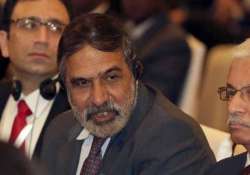WTO adopts Bali package after minor hiccups
Bali: After a minor flutter created by Cuba and three Latin American countries, the WTO today adopted the historic Bali package which addresses several concerns of developing countries including India with regard to food security

Bali: After a minor flutter created by Cuba and three Latin American countries, the WTO today adopted the historic Bali package which addresses several concerns of developing countries including India with regard to food security and trade facilitation.
The Bali package was approved by the WTO after the issues raised by Cuba and other nations namely Bolivia, Nicaragua and Venezuela - with regard to trade facilitation agreement - were resolved and included in the package.
"The ninth ministerial conference adopted the full Bali package...these are historic achievements but the race is not over," Indonesian Trade Minister Gita Wirjawan said during the closing session of the WTO ninth ministerial conference.
On the contentious issue of public stockholding of grains for food security purposes, Gita said: "We have negotiated a package for food security that will provide food to millions of poor in the world."
Commerce and Industry Minister Anand Sharma too described the decision as historic for India.
"India has played a major role in the revival and re-energising the Doha Round of talks. The Bali declaration is a positive step," Sharma added.
On the trade facilitation agreement, Gita said that pact would boost global trade by USD 1 trillion.
"We did it...it is a historic deal...these are historic achievements...but there is still much to do...," Gita added.
The WTO has achieved a major breakthrough since 1995, when it was formed.
Expressing satisfaction over the developments, World Trade Organisation (WTO) Director General Roberto Azevedo said that "in recent times, the WTO has come alive...we have not seen such efforts for long time, we have put the world back into the WTO".
There were apprehensions that failure of Bali talks would have severely affected the credibility of the multilateral Body.
The Bali package was approved by the WTO after the issues raised by Cuba and other nations namely Bolivia, Nicaragua and Venezuela - with regard to trade facilitation agreement - were resolved and included in the package.
"The ninth ministerial conference adopted the full Bali package...these are historic achievements but the race is not over," Indonesian Trade Minister Gita Wirjawan said during the closing session of the WTO ninth ministerial conference.
On the contentious issue of public stockholding of grains for food security purposes, Gita said: "We have negotiated a package for food security that will provide food to millions of poor in the world."
Commerce and Industry Minister Anand Sharma too described the decision as historic for India.
"India has played a major role in the revival and re-energising the Doha Round of talks. The Bali declaration is a positive step," Sharma added.
On the trade facilitation agreement, Gita said that pact would boost global trade by USD 1 trillion.
"We did it...it is a historic deal...these are historic achievements...but there is still much to do...," Gita added.
The WTO has achieved a major breakthrough since 1995, when it was formed.
Expressing satisfaction over the developments, World Trade Organisation (WTO) Director General Roberto Azevedo said that "in recent times, the WTO has come alive...we have not seen such efforts for long time, we have put the world back into the WTO".
There were apprehensions that failure of Bali talks would have severely affected the credibility of the multilateral Body.